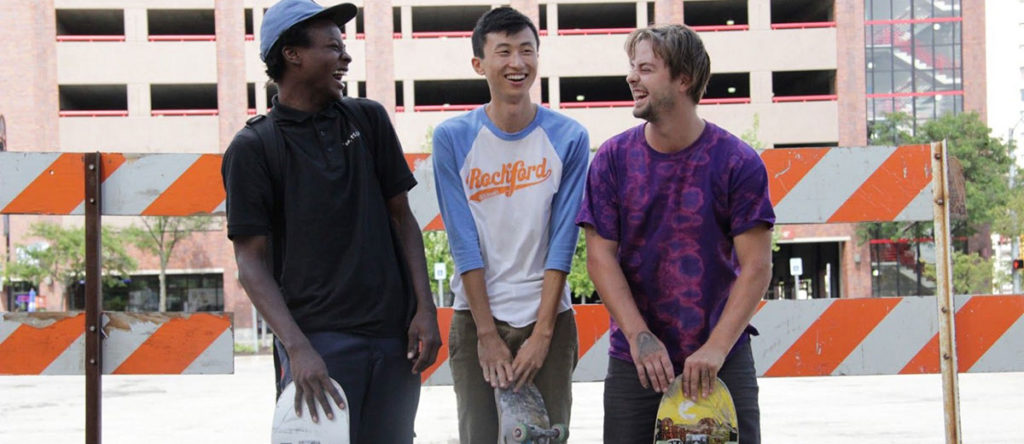For many years, I worked at an arthouse movie theatre in Scottsdale, Arizona. There I had the pleasure of screening many foreign films, low-budget indies, and documentary features that, while gripping, just never made it to the mainstream. While the lattermost genre has experienced a bit of a theatrical renaissance this year (look no further than the success of films like Won’t You Be My Neighbor? and Three Identical Strangers), these types of movies have also been able to reach a wider audience thanks to the advent of streaming services. The latest example of this is Minding the Gap — a new documentary now streaming on Hulu.
Minding the Gap starts off somewhat deceptively, as it follows a group of skateboarding friends who speak on why they’re passionate about the sport and perform various tricks for the camera. By the time the scene changed to various antics of this same group at a party, I was bracing myself for a mix between Dogtown and the Z Boys and Jackass. Luckily, that’s far from what the film ends up being. In fact, while its origins may be traced to director Bing Liu’s desire to film his friends skating, it eventually becomes clear that this documentary is about much more than ollies or kickflips.
Set in Rockford, Illinois (not the U.K. as the title might suggest to some), Minding the Gap explores a number of topics such as rebellion, family relationships, domestic violence, and more. Yet, at the end of the day, the film isn’t so much about these discussions as it is about the people discussing them. To that point, while it’s easy to laugh at some of the angsty observations made by these young adults, Liu also shows that the grown-ups in the film don’t necessarily have it all figured out either.
Something I didn’t really notice about Minding the Gap prior to its final credits rolling was just how much time has passed during filming. While there are some clues along the way, it’s fascinating to realize that we really did just watch these individuals grow up over the course of 90 minutes. Equally interesting is how Liu evolves as a filmmaker during the shooting process, with his friends even noting the change in style (“what kind of filming are we doing today?” one subject asks). Perhaps more than anything, this explains why the movie seems to really find its voice in its latter half as it takes on the form of more traditional documentaries that have a real point to make. As a result, despite the film lacking a true driving narrative, it still manages to build to an emotional climax that’s likely to leave audiences with mixed feelings about some the people they’ve met in the film.
Ultimately, Minding the Gap will likely prove divisive even among those who enjoy documentary films on the whole. Its slice-of-life nature and soft narrative structure could be compared to films like Boyhood, which have already been known to split audiences even without the documentary aspect. All that said, despite my concerns early on, I ended up really enjoying the film for what it was and came to appreciate what Liu had crafted. Although I won’t be ranking it among my favorite docs, it’s one I can say I’m definitely glad I watched.
I give Minding the Gap 3.5 out of 5 skate decks. The documentary is now streaming on Hulu.

